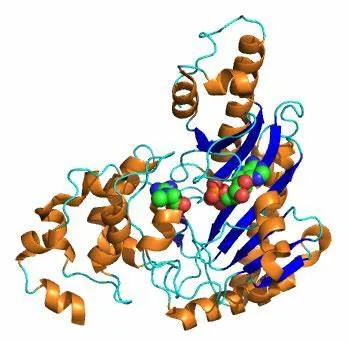DEFINITION
Creatine kinase (CK) is an enzyme found primarily in muscle cells. It catalyzes the conversion of creatine to phosphocreatine, an important energy reservoir for muscle contraction.
EXPLANATION
CK blood levels are often tested as a marker of muscle damage resulting from intense exercise, injury, or certain muscle disorders. Strenuous eccentric exercise in particular can result in elevated CK due to microtears in muscle fibers.
However, mild to moderate CK increases after hard training are generally benign. Levels typically peak 24-48 hours post-exercise and return to normal within a week as muscle damage is repaired. Persistently high CK without explanation warrants medical evaluation.
EXAMPLES
Activities that commonly increase CK:
- Weight training with eccentric emphasis
- Downhill running
- Sports with frequent collisions like rugby
- Unaccustomed exercise like a marathon
- Rhabdomyolysis – a severe form muscle breakdown
RELATED TERMS
- DOMS – Delayed onset muscle soreness also from muscle damage.
- Myoglobin – Another protein marker of muscle breakdown.
- Creatine – CK facilitates creatine phosphate production.
COMMON RELATED QUESTIONS
- How high can CK go after exercise? Anywhere from double to 20 times the normal upper limit depending on exertion.
- How long does elevated CK last after working out? Usually 3-7 days but levels should keep trending down during recovery.
- Should I be concerned about post-workout CK rises? Not unless they remain highly elevated or kidney function is impaired.
DO NOT CONFUSE WITH
- CPK – An alternate abbreviation for creatine phosphokinase, another name for CK.
Thank you for reading this post, don't forget to subscribe to our free newsletter
!
